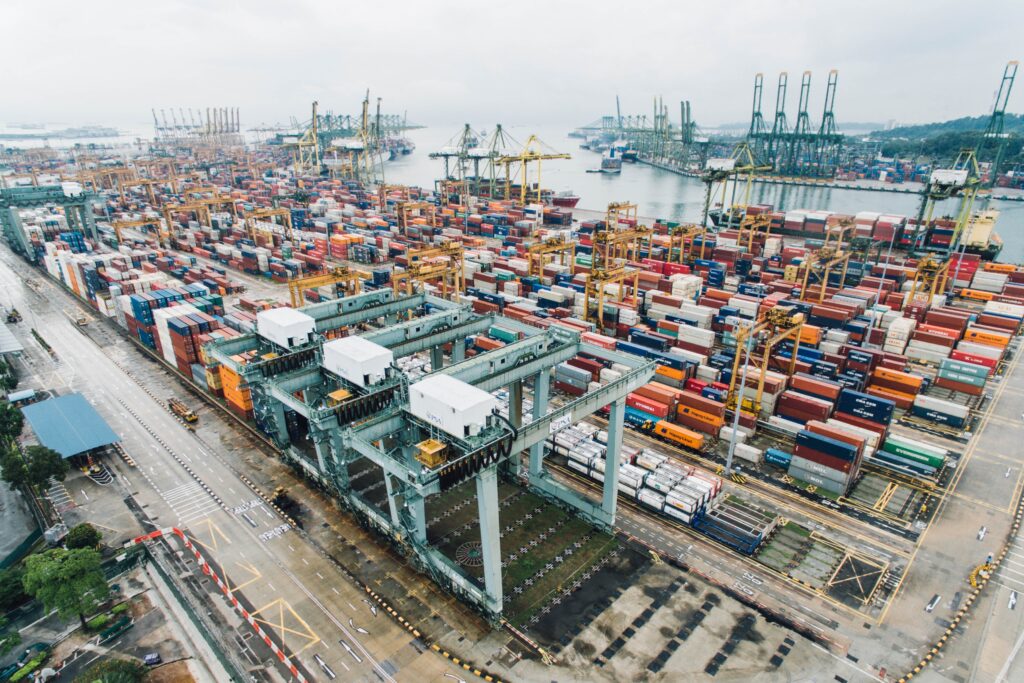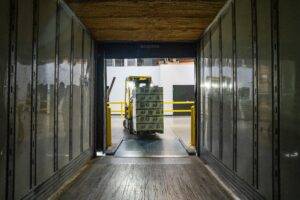The modern logistic sector has flourished thanks to globalization, the expansion of online commerce, and rising consumer needs and expectations. Perhaps you’re wondering, though, what a logistics company actually is and does. All the queries you have about logistics will be answered in a way that is easy to understand.
This article will show you all you need to know about logistics, from what is a logistic company to what is logistics in business to logistics services for all businesses to the various forms of logistics and the various types of logistics services. Just keep reading to find succinct explanations to all your concerns!
What is a Logistics Company?
Supply chain management refers to the process of coordinating the delivery of a company’s goods or services from their point of production to their end users in a way that satisfies both the company’s and its customers’ needs.
The usual definition of a transportation company is one that oversees the distribution and storage of products and data along a supply chain from point A to point B. Depending on the specifics of a client’s logistics requirements, a wide range of logistics providers can take care of a specific supply chain function or all of them.
Logistics management for the distribution of goods is now a worldwide endeavor. Logistics is a phrase commonly used in the business world to describe the organization and management of the storage and distribution of commodities from their site of production to their final destination. In this context, the supply chain plays a crucial role.
All or more of the following activities can be part of a well-managed supply chain: transit, shipment, receipt, storage Information, transportation, inventory, warehousing, material handling, packaging, disposal, and security are all examples of what are known as “logistics” in the corporate world.
Strategies & Execution of Logistics
When one facet of logistics (transportation, packaging, stock control, storage, etc.) runs smoothly, the entire process improves. It’s like having a team of people working together in relay fashion to get things done. The supply chain is dynamic and always changing. Therefore, many businesses tailor their logistics strategies to certain product lines, locations, or client groups to better respond to market shifts that affect some of their operations while keeping others running smoothly. As a result, there is no question that having a solid Logistics Planning & Strategy is crucial to a company’s prosperity and reputation.
An Overview of the Three Primary Components of Strategic Logistics
Strategic logistics planning comprises three main components:
1. Long-term Objective
Logistics planning and strategy have three overarching objectives: customer satisfaction, competitive advantage, and supply chain management.
2. Means of Achieving Those
The long-term objectives can be met through value delivery, excellent customer service, and the availability of resources to put logistical strategy into action.
3. Process for achieving those
Determining how the logistics strategy will be implemented, being prepared for and adaptable in the face of change, and connecting every facet of the logistics strategy to the company’s larger business goals are all steps in the process of reaching those goals.
Choosing the Right Kind of Logistics Service Provider
You probably already know this if you are in the market for a logistics company. It can be difficult to find a reliable third-party logistics provider. Making an informed decision about this topic calls for lots of study, deliberation, and calculation. This is because, in the present day, a logistics service provider is responsible for so much more than just shipping and receiving goods. Transporting goods and data from one location to another requires careful planning, management, execution, and monitoring, all of which fall under the purview of a logistics firm.
The supply chain’s third-party logistics provider must also guarantee the goods’ security during transit. The logistics service provider is responsible for everything between the product’s point of manufacture and its point of delivery. Here are the best guidelines to help you choose a good logistics company so you know you’re making a positive move:
- Verify that the company has a good reputation.
- The needs of your company’s logistics service must be defined in advance.
- Examine the Logistics Provider to Determine if It Fulfills Your Needs
- Think about the reputation and background of the logistics service provider
- Verify that your Partner Is Securely Bonded
- Determine the Forwarder’s Connections by Asking
- Try Out Their Customer Service and See How They Stack Up
Why Should Your Business Hire a Logistics Company?
Given their depth of experience, logistics companies are in a prime position to advise on the most time- and money-saving, streamlined approach to managing the transport of goods. While some businesses handle all or most of their supply chain logistics, others find that working with a professional logistics firm has many advantages.
- Warehousing
Warehousing is one of the crucial factors in the logistics business. Nomatter you are looking for a logistics warehousing service in Canada or the USA or some other part of the world. Getting the best warehousing services is becoming more complex and costly due to several factors. If a client hires a logistics company, they won’t have to worry about spending time and money trying to find a suitable storage facility in a convenient location.
- Packaging
Timely and accurate order fulfillment is a service that requires a skilled workforce and specialized machinery. Logistics firms have already invested in the equipment and personnel needed to keep an organization running smoothly and meeting customer demands.
- Shipping & Transportation
In most cases, factories will not finance their vehicle and driver fleets. Obtaining the required licenses and training employees is a time-consuming and costly process that might be avoided in favor of focusing on core competencies. These services are already in place at logistics firms, so they are likely to be stable and dependable.
- Flexibility
There is less chance of delays when working with a logistics firm because of their ability to scale up or down depending on demand. When problems arise in the supply chain, they have the tools and knowledge to make necessary changes to procedures and the means of transport.
- Technology
Advanced tools available to the logistics industry allow for the digitization of the supply chain, leading to increased efficiency and dependability. By utilizing collaborative transportation management software, for instance, load scheduling tasks can be automated. Aside from computers, long-range RFID tracking and Internet of Things (IoT) devices are also frequently used.
Wrapping Up
Long-term cost reductions of a significant amount and improved customer service can be achieved through logistics process streamlining, consolidation, and outsourcing. Get in touch with I-Way Logistics to learn more about logistics companies and what they do. Our Canada shipping services are designed to assist you in meeting your shipping requirements as a whole. Please feel free to contact us with any inquiries regarding shipping and logistics. We strive to give you the very best service as a customer.




